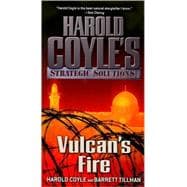
New York Times bestselling author HAROLD COYLE is a graduate of the Virginia Military Institute. He spent fourteen years on active duty with the US Army. He lives in Leavenworth, Kansas.
BARRETT TILLMAN is the author of many fiction and nonfiction books including Clash of the Carriers and Hellcats. He lives in Mesa, Arizona.
The New copy of this book will include any supplemental materials advertised. Please check the title of the book to determine if it should include any access cards, study guides, lab manuals, CDs, etc.
The Used, Rental and eBook copies of this book are not guaranteed to include any supplemental materials. Typically, only the book itself is included. This is true even if the title states it includes any access cards, study guides, lab manuals, CDs, etc.